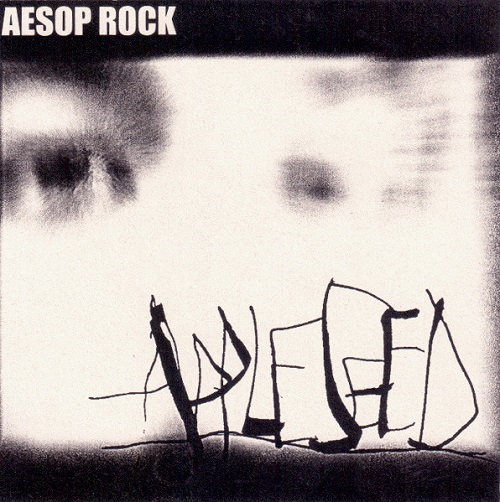1999 is, somehow, the apex of the indie rap era. Many gems are recorded, that year. The more we dig, the more of these we find, released by small labels, or self-released. Appleseed is one of these. With its eight tracks this short CD, sold directly by its author on his own website, generates a small buzz on the Internet, and it helps propelling the career of Ian Bavitz, a.k.a. Aesop Rock, an MC and producer based in Boston - but originally from Long Island - who appeared two years earlier with his Music For Earthworms album.

As a rapper, Aesop – the "Rock" in his alias was added a bit later, to prevent any confusion with Asop from the Living Legends – has a few trademarks: a deep voice that sounds older than his age, a monochord flow, and a peculiar way to over-articulate sophisticated, abstract and intellectual lyrics.
Aesop Rock is supported by two beatmakers, Block - the future Blockhead - and Omega, but he produces most of the tracks himself. Also, he drawed the cover art, jointly with Neal Usatin. Actually, he shows he can do anything: a bit of beatboxing on the "Appleseed Intro", some dark jazz rap on "Dryspell" - based on Ornette Coleman's "Peace" - and some gloomy kind of rap on "Same Space (Tugboat Complex)".
The greatest times of this short album, though, don't start before the organ and discreet strings of 'Sick Friend". Those who deplore Aesop Rock's sobriety, austerity, and lack of spirit, should rejoice with "1000 Deaths", an astute reinvention of the classic piano / violin sample formula. They should also enjoy the complex, tormented and oriental-sounding "Blue In The Face", as well as the last track on Appleseed, the outstanding "Odessa", where Aesop Rock invites Dose One, one of the best rappers of the Anticon crew.
By 1999, despite this short but great album, built like a crescendo, Aesop Rock is still one of hip-hop's best kept secrets. He is not as visible as he deserves. No, not yet. But things will move quickly. The doors of the most prestigious indie labels will open for him: first Mush Records, then Def Jux, and eventually Rhymesayers. He will collaborate with the indie rap intelligentsia, and become one of the iconic MCs in the hip-hop underground. Over time, the small seed planted with this record will grow into tasty apples.

Great songs!